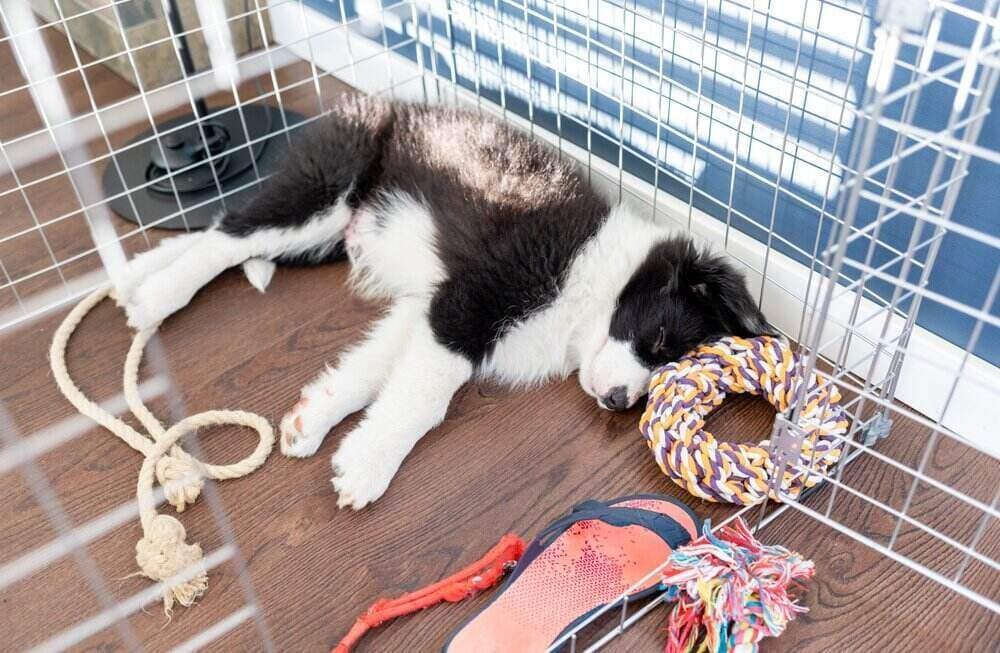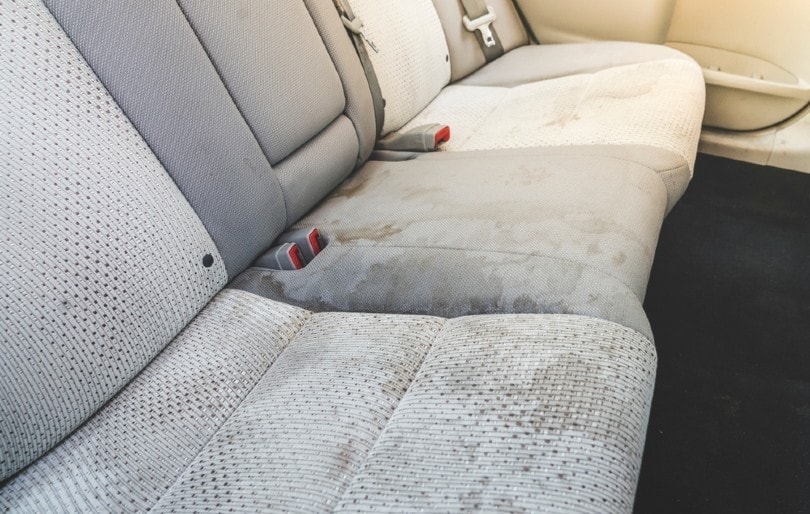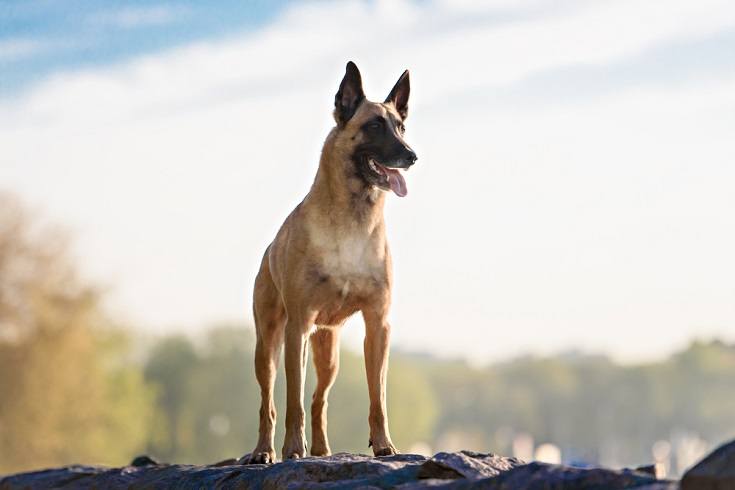Why Is My Puppy Shaking While Sleeping? 6 Vet-Approved Reasons
By Kit Copson
Updated on

As loving dog parents, we’re always on the lookout for signs that something might not be quite right. If your puppy is shaking in their sleep, it’s understandable that you’d be worried, but the good news is that there are some very benign reasons why this can happen.
That said, it’s also important to be aware of the more serious potential causes so you know when veterinary attention is necessary. In this post, we’ll share six reasons why puppies shake in their sleep.
The 6 Likely Reasons Why Your Puppy is Shaking While Sleeping
1. Dreams
Being in the dream state can cause dogs to move around. It’s not uncommon to see dogs air-paddling their feet, twitching, shaking, or even whimpering or growling during sleep, and it usually means they’re just reacting physically to what’s going on in their dream.
According to some sources, twitching during sleep is fairly common in puppies.1 This may happen because the pons, which is a part of the brainstem that prevents animals from physically acting out their dreams by paralyzing certain muscles while the animal is asleep, is not fully developed in very young puppies. Therefore, puppies tend to experience more twitching during sleep than adult dogs do.

2. Cold
Another simple explanation for puppies shaking in their sleep is that they’re cold. Another clue that your dog is cold is that they’re curled up tightly, which is an attempt to preserve warmth. If you suspect that the cold might be the cause of your puppy’s sleep shaking, find ways to cozy up their sleeping area or move them to a warmer spot.
3. Seizures
Fortunately, it’s not common for dogs to experience seizures during sleep, but it shouldn’t be completely ruled out. If your dog is having a seizure, they’ll likely go stiff and move their legs, body, and jaws uncontrollably. It’s also possible for them to lose bladder or bowel control, drool, and have abnormal breathing.

4. Shaker Syndrome
Also known as “white shaker syndrome” due to its prevalence in small white dogs (though larger dogs and non-white dogs can also get it), shaker syndrome is a condition that causes dogs to experience muscle contractions and uncontrollable tremors. It typically happens when the dog is overexcited or exercising and rarely happens during sleep.
5. Discomfort
If only one of your puppy’s limbs is shaking, it might be the result of pain or discomfort caused by an injury, for example. You would also notice other signs such as lameness, abnormal gait, or licking one leg or paw excessively.

6. Toxicity
If your dog has consumed something toxic to them, they might show signs of toxicity (poisoning) during sleep. These signs could include shaking, vomiting, diarrhea, convulsions, tremors, and drooling. Toxicity can also cause dogs to experience seizures.
 Is My Dog Dreaming or Having a Seizure?
Is My Dog Dreaming or Having a Seizure?
Seizures during sleep happen rarely in dogs, whereas shaking due to dreaming is much more common. Furthermore, a sleeping dog having a seizure won’t be easy to wake up, whereas a dreaming dog will respond to their name being called (sometimes after a few attempts). The movement of the limbs of a dog having a seizure will also be more violent than in dreaming dogs.
If you suspect that your dog is having a seizure, do your best to stay calm, and make sure your dog can’t fall off of whatever they’re laying on or bang their head. Try to film the episode and time it. Don’t try to stop your dog from swallowing their tongue—this actually won’t happen, contrary to common belief, and if you put your hand in their mouth, your dog may unconsciously bite down on it.
If your dog’s seizure lasts longer than 2 or 3 minutes, your dog may need to be cooled down with wet towels or some cold water applied to the head, neck, groin, and paws to prevent overheating. Contact your vet immediately, even if your dog seems okay after coming out of the seizure.
Conclusion
Dogs sometimes twitch or shake when they sleep simply because they’re far away in the dream world but, occasionally, more serious issues can cause sleep shaking. If your puppy shakes during sleep but doesn’t wake up easily or shows other signs that something isn’t quite right, please contact your vet to find out what’s going on.
Related reads:
- What Are the Best Materials & Fabrics for a Dog Bed? (Facts, & FAQ)
- 10 Best Dog Blankets – 2024 Reviews & Top Picks
Featured Image Credit: ackieLou DL , Pixabay


 Is My Dog Dreaming or Having a Seizure?
Is My Dog Dreaming or Having a Seizure?









